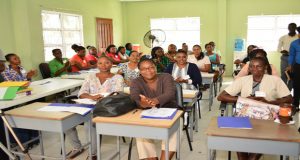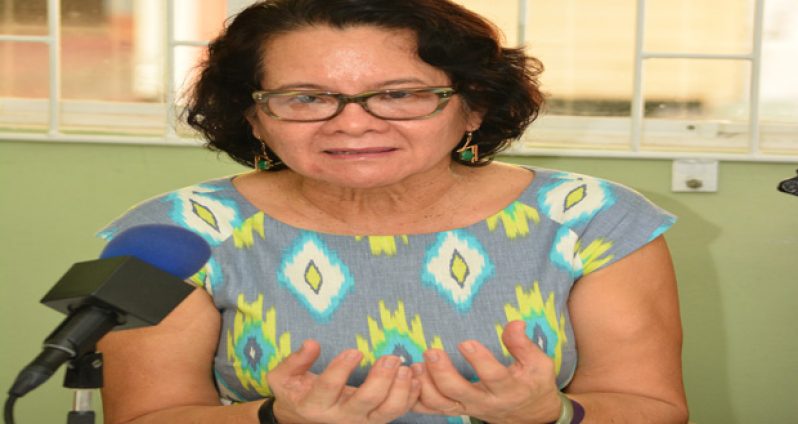THE PALMS yesterday commenced a programme of training of caregivers for elderly persons; and addressing the forum as its keynote speaker, First Lady Sandra Granger made the following observations:
Caring for the elderly is a “major niche market”, although it is being overlooked. It is an important occupation that requires special skills to deliver the love and affection the elderly require, and to acquire the requisite patience and forbearance needed to properly handle elderly folks.

“It is a major niche, because women practise caring all their lives — caring for their children, husbands, relatives and other persons -– and (they) do not see it as a skill. But once you are caring, you have to possess several skills,” the First Lady said.
She said that participants in the programme being run by the Palms will learn the importance of caring for the elderly “during the week.”
Further, she stressed that as the elderly population in the country grows, the trainees would find out that they are in a niche market, because they will develop various skills and the confidence going into a new kind of job.
The First Lady called on other agencies besides the Ministry of Social Protection to continue training persons in this regard, so that trained persons can take their skills back to the various communities and help to care for the elderly in their respective areas of residence.
Mrs Granger called on the trainees to develop a love for caring for the elderly, and not to see it as a mere job because of the difficulties they would face at times while dealing with the elderly.
The five-day workshop regarding caring for the elderly was rolled out by officials at the Palms Geriatric Home, but the initiative is the brainchild of the First Lady.
Speaking more about the workshop, Ismay Griffith, an official of the Palms, disclosed that the idea is to provide general overviews of the major issues which relate to the aging process.
“The participants at the end of the training will be better able to understand the challenges faced by the elderly, who provided for others and themselves in the past,” said Ms. Griffith.
This training, she said, will be a pilot exercise and will be evaluated for best practices as the geriatric institution continues to look at lessons which can be learned from this exercise, so that similar training with necessary modifications can be reproduced in other communities. (Navendra Seoraj)



.jpg)










